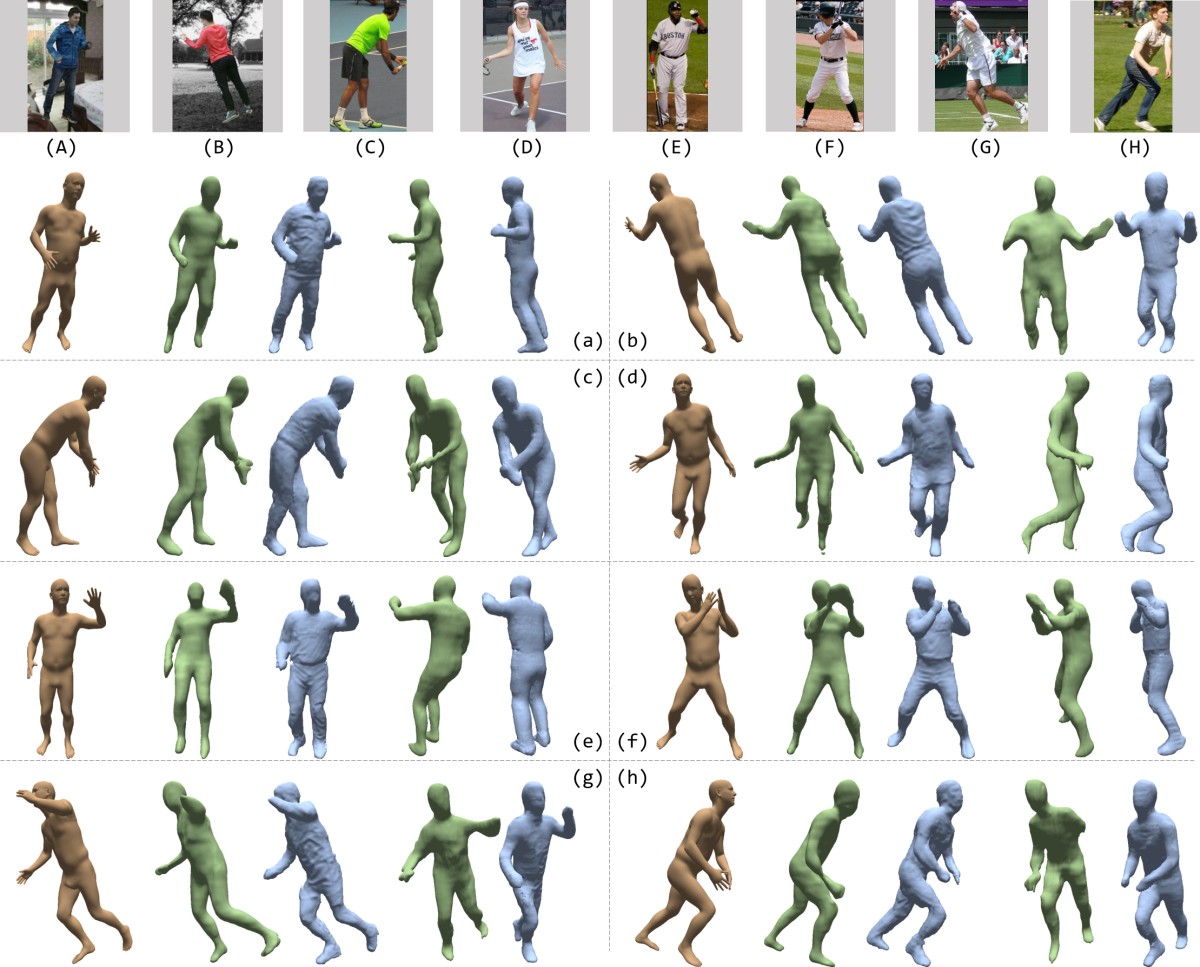Deep Fashion3D: A Dataset and Benchmark for 3D Garment Reconstruction from Single Images
High-fidelity clothing reconstruction is the key to achieving photorealism in a wide range of applications including human digitization, virtual try-on, etc. Recent advances in learning-based approaches have accomplished unprecedented accuracy in recovering unclothed human shape and pose from single images, thanks to the availability of powerful statistical models, e.g. SMPL, learned from a large number of body scans. In contrast, modeling and recovering clothed human and 3D garments remains notoriously difficult, mostly due to the lack of large-scale clothing models available for the research community. We propose to fill this gap by introducing Deep Fashion3D, the largest collection to date of 3D garment models, with the goal of establishing a novel benchmark and dataset for the evaluation of image-based garment reconstruction systems. Deep Fashion3D contains 2078 models reconstructed from real garments, which covers 10 different categories and 563 garment instances. It provides rich annotations including 3D feature lines, 3D body pose and the corresponded multi-view real images. In addition, each garment is randomly posed to enhance the variety of real clothing deformations. To demonstrate the advantage of Deep Fashion3D, we propose a novel baseline approach for single-view garment reconstruction, which leverages the merits of both mesh and implicit representations. A novel adaptable template is proposed to enable the learning of all types of clothing in a single network. Extensive experiments have been conducted on the proposed dataset to verify its significance and usefulness. We will make Deep Fashion3D publicly available upon publication.
PDF Abstract ECCV 2020 PDF ECCV 2020 Abstract

 Deep Fashion3D
Deep Fashion3D
 DeepFashion
DeepFashion
 DeepFashion2
DeepFashion2